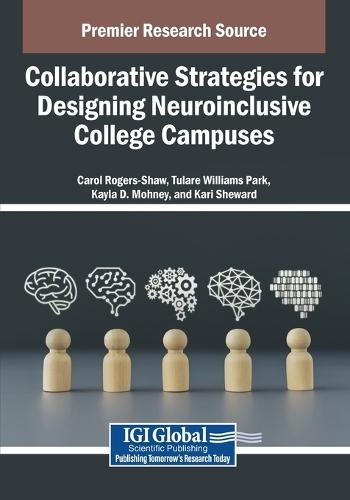Overview
Designing college campuses that support neurodiverse students requires a collaborative, inclusive approach that changes traditional educational spaces. As awareness grows about the needs of individuals with neurological differences, institutions must move toward intentional design. Collaborative strategies are essential in creating environments that foster equity, sensory comfort, and academic success. This approach enhances accessibility while improving the learning experience for all students, making campuses more responsive, empathetic, and adaptable. Collaborative Strategies for Designing Neuroinclusive College Campuses explores how collaborative efforts inform the design of physical, social, and academic spaces to support neurodiverse students in higher education. It examines best practices and design principles that promote sensory-friendly, flexible, and inclusive campus environments. This book covers topics such as education psychology, neurodivergence, and student experiences, and is a useful resource for educators, psychologists, academicians, researchers, and neuroscientists.
Full Product Details
Author: Carol Rogers-Shaw ,
Tulare Williams Park ,
Kayla D. Mohney ,
Kari Sheward
Publisher: IGI Global
Imprint: IGI Global
ISBN: 9798337363516
Pages: 460
Publication Date: 12 August 2025
Audience:
College/higher education
,
Professional and scholarly
,
Tertiary & Higher Education
,
Professional & Vocational
Format: Paperback
Publisher's Status: Active
Availability: In Print

This item will be ordered in for you from one of our suppliers. Upon receipt, we will promptly dispatch it out to you. For in store availability, please contact us.
Author Information
Carol Rogers-Shaw , Ph. D., is an adjunct professor of Educational Administration at the University of Dayton. Dr. Rogers-Shaw earned a doctorate in Lifelong Learning and Adult Education from Pennsylvania State University. She is the co-editor of Adult Learning, an international, peer-reviewed, adult education practice-oriented journal. Carol taught secondary school English for over 30 years, she is the mother of a Neurodivergent adult, and her experiences with Neurodivergent adolescents led her to concentrate on work that highlights the strengths of all learners. Her research focuses on expanding adult educational inclusion for learners with disabilities, transition and support for Neurodivergent learners in postsecondary education, graduate and doctoral study, Universal Design for Learning, imposter phenomenon, profound learning, and spirituality. (carshaw33@gmail.com) Tulare Williams Park , D. Ed. Candidate, ACSW, LSW, MSW, is an assistant professor of Social Work at Commonwealth University of Pennsylvania – Lock Haven. In addition to teaching and academic advising, she has practiced in student support roles and directed the Disability Resources Office. She also has professional experience in the corrections system and community-based mental health. Tulare is currently a doctoral candidate in Lifelong Learning and Adult Education at Penn State University. Her research interests include the emotional and relational experiences of adult learners, social work education, distance education, mental health, adult learner support, and disability studies. (tpark@commonwealthu.edu) Kayla D. Mohney , Ed.D., is an associate professor within the department of exceptionality programs at Commonwealth University of Pennsylvania - Lock Haven. Dr. Mohney taught at a private school for students with exceptionality for seven years, working exclusively with students with extensive support needs prior to starting to work in higher education in 2014. She has taught a variety of courses including foundation and advanced special education teacher preparation courses which focus on supporting students with complex learning needs. Her research interests include test related anxiety reduction strategies, transition to post-secondary education for Neurodivergent learners, and disability inclusion and equity practices in higher education settings. (kayla.mohney@gmail.com) Kari Sheward is the Vice President of Behavioral Health and Clinical Services for Tangram, Inc. She previously acted as Clinical Director for several autism clinics across Central Indiana. She worked in the mental health field as a crisis therapist for several years. When her youngest son received an autism diagnosis, she returned to school and earned her Board Certification in Behavior Analysis. Kari holds an undergraduate degree in psychology from Ball State University and a master's degree in psychology with a specialization in Applied Behavior Analysis from Purdue Global. Kari is currently a doctoral candidate in the University of Dayton's Leadership for Organizations program. Her research interests include transition programming for Autistic students and creating a sense of community on college campuses for Neurodivergent students.



